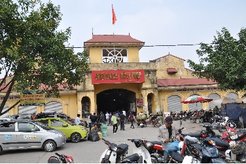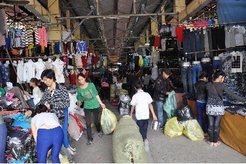Market Transformation and Trade Dynamics in Northern Vietnam: The Case of Ninh Hiep

Since the introduction of the Open Door Policy in 1986, known as doi moi, Vietnam has undergone a thorough process of transformation from central planning to a market economy. Along with the launch of economic reforms, restrictions on trade and physical mobility were also loosened, leading to a sudden multiplication of commercial activities on all levels. While not everyone has been able to cope with or benefit from these rapidly changing circumstances to the same degree, some traders have proven to be extremely successful.

In view of these notable transformations, this project will undertake an in-depth case study of the trade and traders of Ninh Hiep, a historical trading village (in textiles and medicinal plants) in northern Vietnam. Situated near a major long-distance trading route connecting China and Hanoi, Ninh Hiep has been hailed as a "success story" by the media, capturing immense profits from commerce. By focusing on the reorganization of small-scale trade in the post-doi moi era, the aim of my research is to investigate the various factors that have enabled this success of Ninh Hiep as a regional trading hub, as well as the associated socio-economic consequences. I intend to pay close attention to how small-scale traders are dealing with these changing conditions, which include social stratification and the formation of class, re-negotiations over gender roles and divisions of labour, hierarchies and dependencies, tensions and conflicts, and changes in the normative and moral system.
My main research aim leads to the following key research objectives, each of which deals with a specific dimension of the topic. The first objective is to compile a historical account of Ninh Hiep as a trade village (with a particular focus on the subsidized period) in order to better understand and contextualize the changes that have taken place over time. The second is to examine the current organization of trade and the composition of trade relations. The third is to explore the role of local agency in the context of wider processes and changes, specifically including issues of gender, morality and power. Finally, the forth research objective is to analyze the role of the state within contemporary village trade.
Based upon long-term ethnographic fieldwork, this project will provide new insights into the relational dynamics between state, society, and market in Vietnam. It will also shed light on the relationships between interregional and international trade ties and the integration of the local economy.

